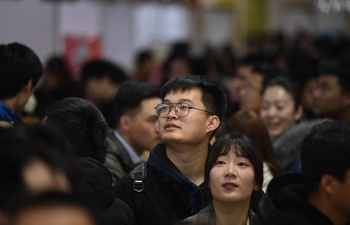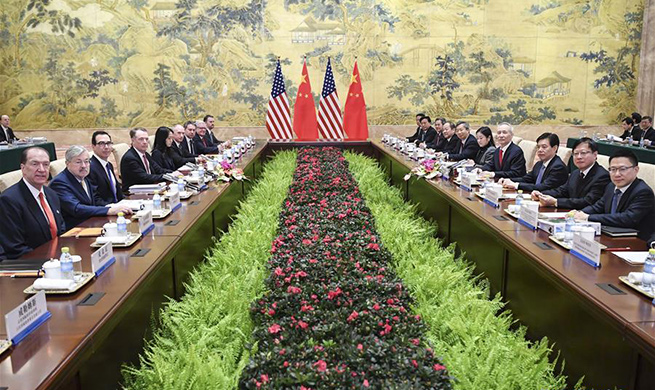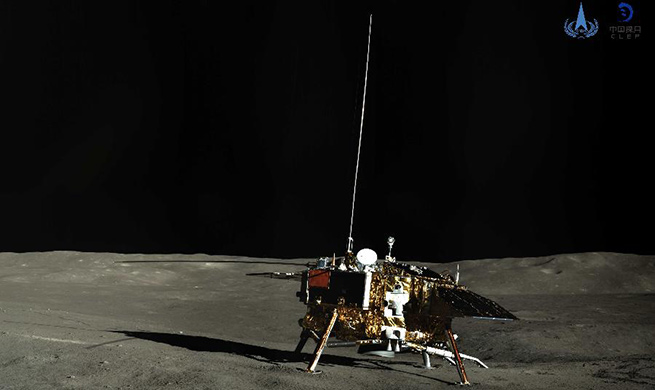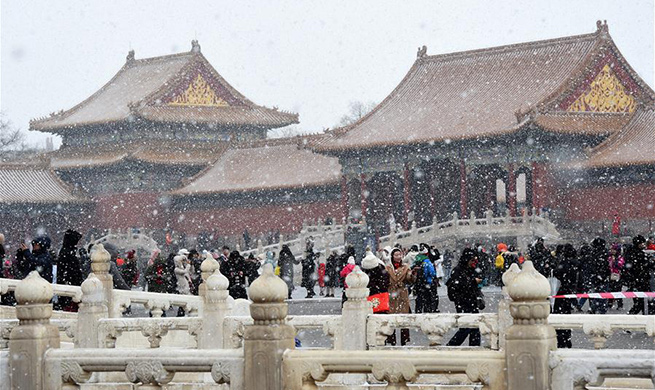CAPE TOWN, Feb. 14 (Xinhua) -- There is no single solution to the problems at embattled electricity utility Eskom, President Cyril Ramaphosa said on Thursday, amid a worsening power crisis that has gripped the country.
Neither restructuring, nor refinancing, nor cost cutting, nor tariff increases, nor better plant maintenance on their own will have the necessary effect, Ramaphosa told parliamentarians during a debate on the State of the Nation Address (SONA) he delivered earlier this month.
For the past several days, Eskom, which provides more than 95 percent of the electricity consumed in South Africa, has resorted to the most extensive load shedding in recent years, plunging large parts of the country into darkness. Continuous blackouts have seriously affected economic activities and people's lives.
High levels of debt and default risk have left the state-run parastatal in dire straits as the power utility battles to meet demand.
The utility is facing debts amounting to 420 billion rand (about 30 billion U.S. dollars). The Department of Public Enterprises (DPE) said on Wednesday that Eskom would cease to exist at the current trajectory by April this year.
"The unprecedented failure of Eskom's generating capacity over the last few days underlines the severity of the challenges the company faces and the urgency of measures to address them," Ramaphosa said.
For those who have doubted the extent of these challenges, this week's load-shedding has provided a hugely damaging reality check, he said.
In his SONA, Ramaphosa announced to establish three separate state-owned entities - for generation, transmission and distribution respectively - to fix Eskom.
Ramaphosa said on Thursday that although his announcement has received the most attention, it is by no means the only or most significant measure that must be undertaken.
He said restructuring will reduce the risk of a massive Eskom that at times has, in its current form, been termed too big to fail, placing the government in a position where all its eggs are in one basket.
A restructuring plan must be accompanied by - and must be dependent on - a credible, far-reaching turnaround plan that has both an immediate and a lasting impact, the president said.
"The fundamental principle that must underpin our response to the Eskom crisis is that it must be inclusive and consultative," he said.
He admitted that the government has not done enough to bring some of the key stakeholders, such as labor, on board and is determined to correct this.
"As social partners, as stakeholders, as a country, we have a common interest in finding sustainable solutions to the crisis at Eskom.
"We therefore have a collective responsibility, which extends beyond our immediate interests, to work together to fix Eskom," Ramaphosa said.
He rejected a proposal by Economic Freedom Fighters (EFF) leader Julius Malema that Eskom should be privatized.
There are sound, valid and compelling reasons to separate Eskom into different entities, but it is not a path to privatization, the president said.
Any plan to salvage Eskom should align the parastatal with international electricity trends, where the vertically integrated electricity utilities have been broken up to enable better regulatory oversight through a single buyer model, increase competition in the generation and distribution space driving down the cost of electricity for the economies, Ramaphosa said.
"A good example of this transformation is the People's Republic of China," the president said without elaboration.
A unitary Eskom has proven to be difficult to lead, he said.













